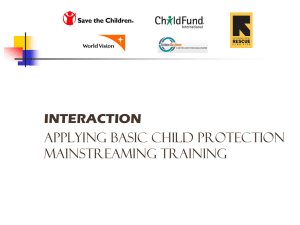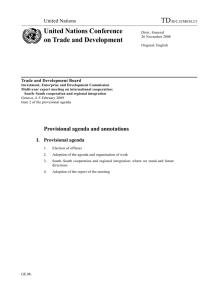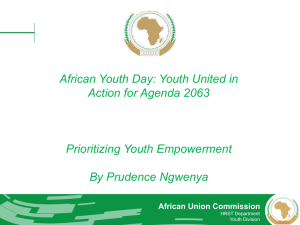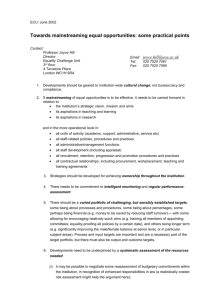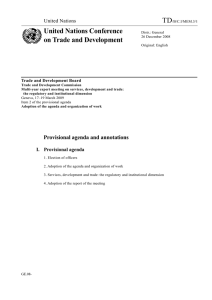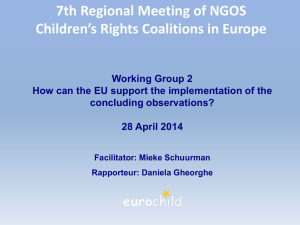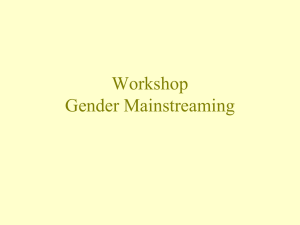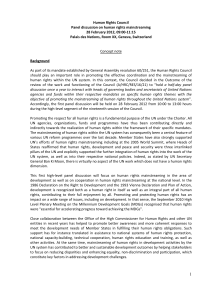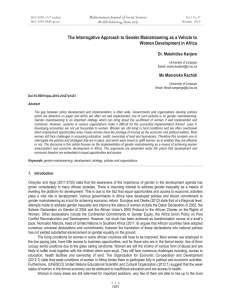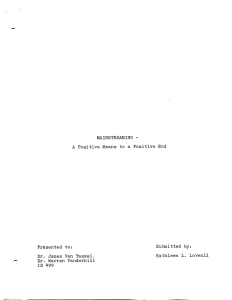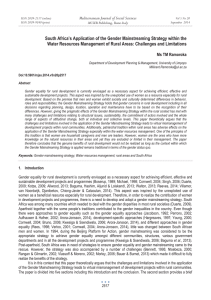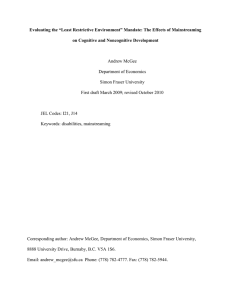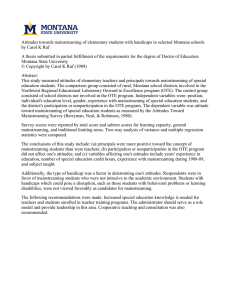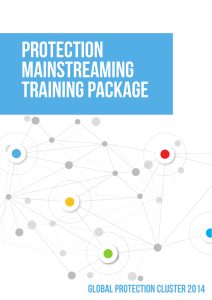TD United Nations Conference on Trade and Development United Nations
advertisement
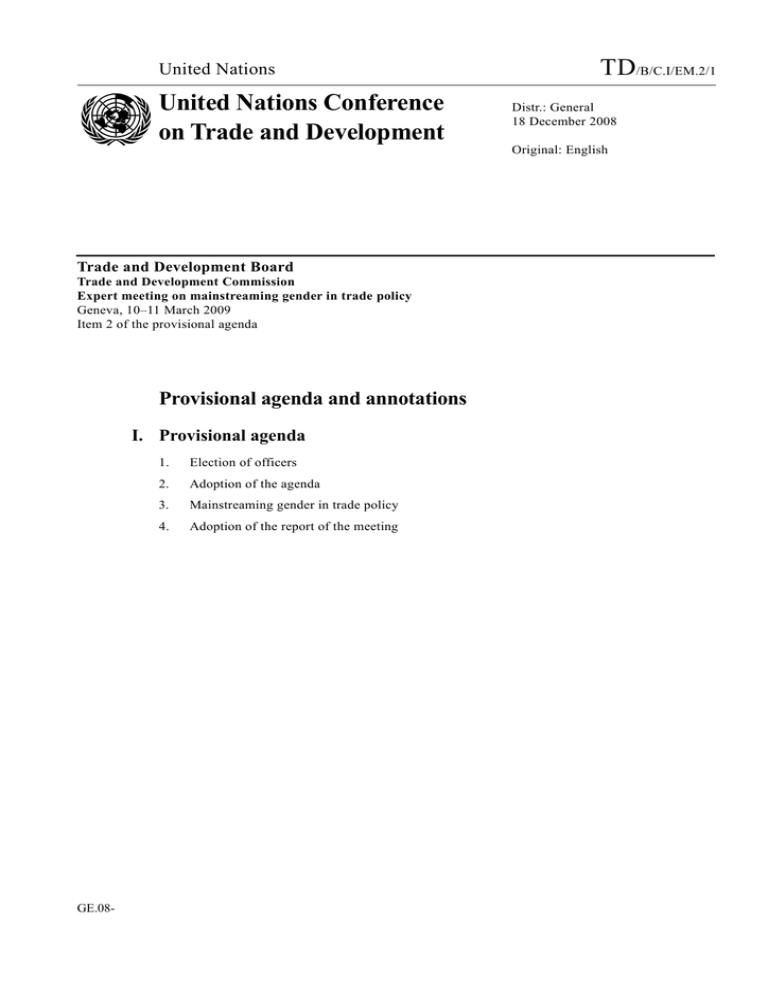
United Nations United Nations Conference on Trade and Development TD/B/C.I/EM.2/1 Distr.: General 18 December 2008 Original: English Trade and Development Board Trade and Development Commission Expert meeting on mainstreaming gender in trade policy Geneva, 10–11 March 2009 Item 2 of the provisional agenda Provisional agenda and annotations I. Provisional agenda GE.08- 1. Election of officers 2. Adoption of the agenda 3. Mainstreaming gender in trade policy 4. Adoption of the report of the meeting TD/B/C.I/EM.2/1 II. Annotations to the provisional agenda Item 1. Election of officers 1. It is recommended that the expert meeting elect a Chair and a Vice-Chair-cumRapporteur. Item 2. Adoption of the agenda 2. The provisional agenda for the meeting is reproduced in chapter I above. A detailed programme will be available one week before the meeting. TD/B/C.I/EM.2/1 Item 3. Documentation Provisional agenda and annotations Mainstreaming gender in trade policy 3. The topic of this expert meeting was approved by the extended Bureau of the Trade and Development Board on 29 August 2008. The expert meeting will first analyse the extent to which trade policies affect women’s empowerment and well-being, and the impact of trade policies on the level of inequality between men and women. Secondly, it will provide the opportunity to discuss relevant strategies to make trade policies more responsive to the specific needs of women. 4. Trade policies often have a strong redistributive effect, both across economic sectors and among individuals. They can create opportunities for women’s empowerment, but they can also create burdens, as they disrupt markets in which women operate. This is why the gender perspective should be included in the design and implementation of trade policies. By assessing the gender implications of trade policies, policymakers can direct them to facilitate women’s empowerment and well-being, while at the same time avoiding the increase in disparity between men and women. 5. Despite these disparities, globalization and trade liberalization are often assumed to be gender-neutral. As a result, national priorities for trade policies and trade negotiations are generally determined with little gender analysis. Mainstreaming gender in trade policy means (a) assessing which impacts trade policies and trade liberalization could have on the well-being of men and women, under the assumption that distinct sectors and groups within a country will be impacted differently; and (b) consequently formulating trade policies and pacing trade liberalization in a gender-sensitive manner. 6. To facilitate the discussions, the UNCTAD secretariat has prepared two issues notes. The first – on mainstreaming gender in trade policy – provides the thought processes behind the relationship between trade policy and gender, discusses effective ways of mainstreaming gender into trade policy and provides policy recommendations. The second note tackles trade and gender linkages by presenting seven case studies. In addition, experts are encouraged to prepare brief papers on the subject under discussion. TD/B/C.I/EM.2/2 TD/B/C.I/EM.2/3 Item 4. Documentation Mainstreaming gender in trade policy Mainstreaming gender in trade policy: case studies Adoption of the report of the meeting 7. The expert meeting is expected to contribute to a better understanding of the determinants that cause women to benefit or lose from trade policy and trade 2 TD/B/C.I/EM.2/1 integration. Such an understanding will help in the design of policies and programmes that take into account the possible negative implications of trade policy on women and ensure that trade policy contributes to shared prosperity. Mainstreaming gender in trade policy is receiving increased attention in many multilateral technical assistance programmes, such as the Enhanced Integrated Framework for Trade-related Technical Assistance to Least Developed Countries. The Accra Accord requests UNCTAD to “strengthen its work on the linkages between trade and internationally agreed development goals and objectives, including the Millennium Development Goals, including poverty reduction and gender equality” (para. 96(d)). 8. The report of the expert meeting will be submitted to the Trade and Development Commission at its next session. Inputs from experts Experts nominated by member States are encouraged to submit brief papers (approximately five pages) as contributions to the work of the meeting. The papers will be made available at the meeting in the form and language in which they are received. They should be submitted to the UNCTAD secretariat in advance of the meeting, and addressed to Ms. Simonetta Zarrilli, Palais des Nations, CH-1211 Geneva 10, Switzerland; fax: +41 (0)22 917 5622; e-mail: simonetta.zarrilli@unctad.org. 3
